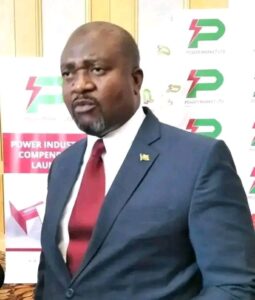Columns
Addressing Fuel Scarcity in Malawi: A Comprehensive Strategy for Sustainable Solutions

By Twink Jones Gadama
Malawi is currently facing a significant fuel shortage that has persisted into 2025, creating a ripple effect that is adversely impacting the economy and the daily lives of its citizens. The scarcity of fuel has led to increased prices of goods and commodities, exacerbating the already challenging living conditions for many Malawians. As the government grapples with this pressing issue, it is imperative to adopt a multifaceted approach that not only addresses the immediate crisis but also lays the groundwork for a sustainable energy future.
To effectively tackle the fuel scarcity problem, the Malawi government must first conduct a thorough assessment of the underlying causes of the crisis. This includes analyzing the supply chain, identifying bottlenecks in fuel distribution, and understanding the dynamics of fuel pricing. A comprehensive audit of the existing fuel procurement processes is essential to pinpoint inefficiencies and corruption that may be contributing to the shortages. By engaging with stakeholders across the fuel supply chain, including importers, distributors, and retailers, the government can gain valuable insights into the challenges they face and collaboratively develop solutions.

One of the most pressing issues contributing to fuel scarcity in Malawi is the reliance on imported fuel. The government must explore diversifying its sources of fuel supply to mitigate the risks associated with over-dependence on a limited number of suppliers. This could involve establishing partnerships with multiple international oil companies and exploring alternative supply routes. Additionally, the government should consider investing in strategic fuel reserves to buffer against future supply disruptions. By maintaining a stockpile of fuel, Malawi can better withstand fluctuations in global oil prices and ensure a more stable supply for its citizens.
Furthermore, the government should prioritize the development of local refining capacity. Currently, Malawi imports a significant portion of its fuel, which exposes the country to global market volatility and supply chain disruptions. By investing in domestic refining infrastructure, Malawi can reduce its dependence on imported fuel and create jobs in the process. This initiative would require substantial investment and technical expertise, but the long-term benefits of energy independence and economic resilience would be invaluable.
In addition to enhancing fuel supply and refining capacity, the government must also address the issue of fuel pricing. The current pricing structure often leads to inflated prices at the pump, which disproportionately affects low-income households. The government should consider implementing a more transparent pricing mechanism that reflects the true cost of fuel while protecting consumers from sudden price hikes. This could involve establishing a fuel price stabilization fund that cushions consumers during periods of price volatility. By ensuring that fuel prices remain affordable, the government can alleviate some of the economic pressures faced by Malawians.
Moreover, the government should invest in public transportation infrastructure to reduce the overall demand for fuel. By promoting the use of public transport, the government can decrease the number of private vehicles on the road, thereby reducing fuel consumption. This could involve expanding existing public transport services, improving road infrastructure, and incentivizing the use of fuel-efficient vehicles. Additionally, the government should explore the potential of alternative energy sources, such as solar and wind power, to diversify the energy mix and reduce reliance on fossil fuels.
Education and awareness campaigns are also crucial in addressing fuel scarcity. The government should engage with the public to promote energy conservation practices and encourage the use of alternative modes of transportation. By raising awareness about the importance of fuel efficiency and conservation, the government can foster a culture of sustainability among its citizens. This could include initiatives such as carpooling programs, cycling campaigns, and workshops on energy-efficient practices.
Collaboration with the private sector is another essential component of a comprehensive strategy to address fuel scarcity. The government should engage with businesses and industry leaders to explore innovative solutions to the fuel crisis. This could involve partnerships to develop alternative energy projects, such as biofuels or electric vehicle infrastructure. By leveraging the expertise and resources of the private sector, the government can accelerate the transition to a more sustainable energy future.
In addition to these measures, the government must also strengthen regulatory frameworks to ensure accountability and transparency in the fuel supply chain. This includes enforcing strict anti-corruption measures to prevent malpractices that contribute to fuel shortages. By establishing a robust regulatory environment, the government can instill confidence in investors and stakeholders, ultimately leading to a more stable and reliable fuel supply.
Finally, the government should actively engage with regional and international partners to address the fuel crisis. Collaborating with neighboring countries and international organizations can provide valuable resources and expertise in tackling the challenges of fuel scarcity. This could involve sharing best practices, accessing funding for infrastructure projects, and participating in regional energy initiatives. By fostering strong partnerships, Malawi can enhance its energy security and resilience in the face of future challenges.
In conclusion, the fuel scarcity crisis in Malawi requires a comprehensive and multifaceted approach that addresses both the immediate challenges and the long-term sustainability of the energy sector. By conducting a thorough assessment of the supply chain, diversifying fuel sources, investing in local refining capacity, implementing transparent pricing mechanisms, promoting public transportation, and fostering collaboration with the private sector, the government can create a more resilient energy landscape. Additionally, strengthening regulatory frameworks and engaging with regional partners will further enhance Malawi’s ability to navigate the complexities of the global energy market. With decisive action and a commitment to sustainable solutions, the Malawi government can pave the way for a brighter energy future for its citizens.






